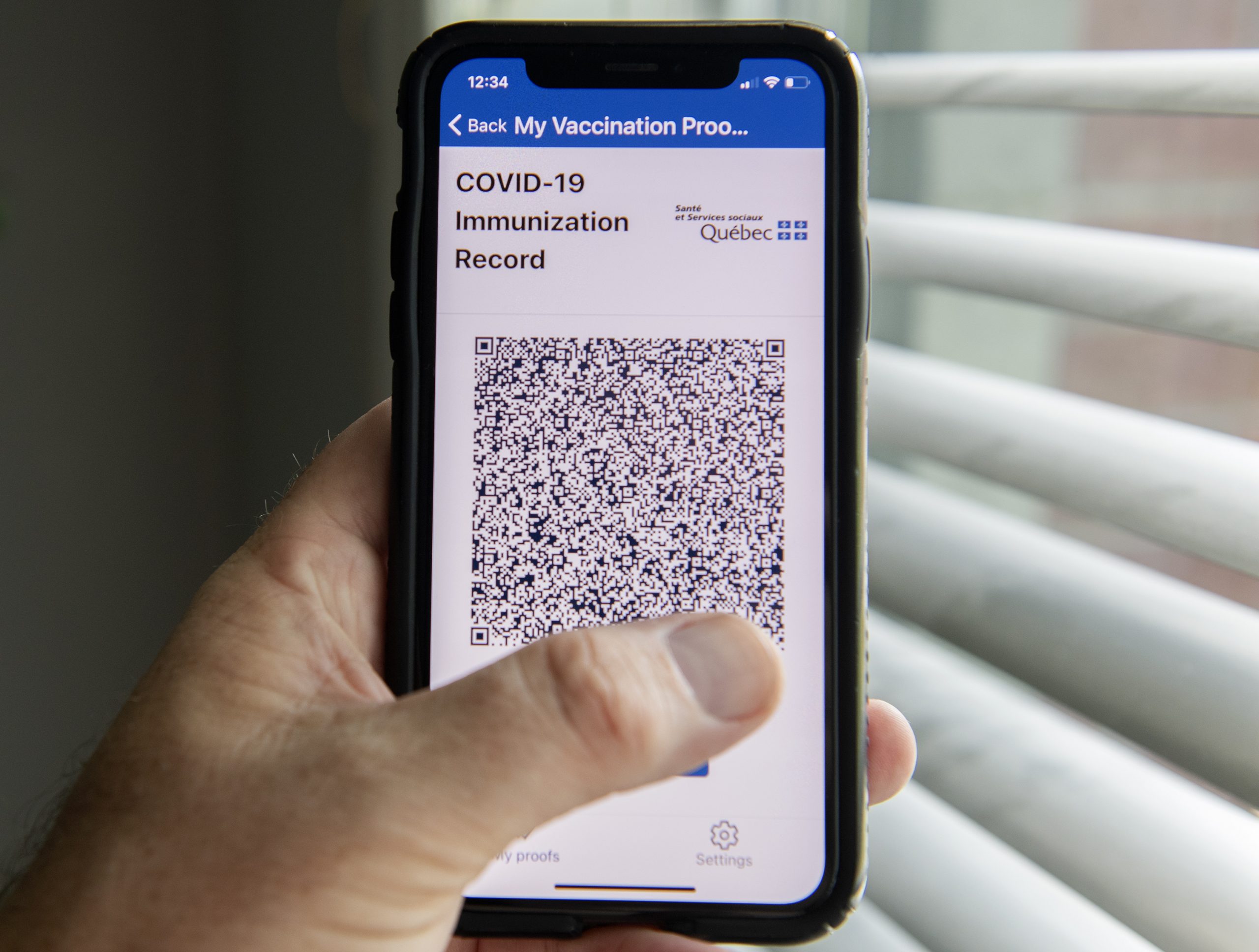Vaccine certificate FAQs: What to know about Ontario’s mandated plan

Posted September 1, 2021 3:23 pm.
Last Updated September 2, 2021 2:24 pm.
Ontario and the Ford government say its COVID-19 vaccination certificate program will come into effect September 22, with a second version starting October 22 that will include a digital option.
These requirements will not apply to settings where people receive medical care, food from grocery stores, and medical supplies.
While proof of vaccination will apply to various non-essential settings – such as restaurants, gyms, movie theatres, among others – the government left out some notable retail sectors.
Premier Doug Ford made it clear that the government’s vaccine certificate would be temporary “to address health and safety in the COVID-19 pandemic.”
Here is everything you need to know.
Hair, nail salons and malls
After barbershops, hair and nail salons were closed for an extended period during Ontario’s third wave of COVID-19, the province’s Chief Medical Officer of Health says they are not among the list of non-essential businesses that must seek out a vaccine certificate come Sept. 22.
When asked why Dr. Kieran Moore said they finalized their list by looking at thorough COVID-19 data that showed where transmission is most likely. Moore acknowledged that hair and nail salons, as well as malls, are not among risky settings.
As for malls, Ontario’s approach differs from other global vaccine passports, such as France, where proof of vaccination is needed in a public setting that exceeds 50 or more people.
Moore said more settings might be added to the list as COVID-19 trends develop.
Between September 22 and October 12, the government says it is planned that people attending wedding or funeral receptions at a meeting or event space will provide a negative rapid COVID-19 test from no more than 48 hours before the event as an alternative to proof of vaccination.
Why isn’t the vaccine certificate mandated for employees?
While patrons will need to show a paper or digital receipt of vaccination and another form of identification to gain access to spaces covered by the new rules, it won’t apply to staff in affected sectors.
Moore says the government is leaving it in the hands of employers to make a policy that requires staff, such as servers, to be vaccinated.
“The other piece of protection that you have within a restaurant, for example, is that every worker should be screening for symptoms when they show up,” said Moore. “They should be tested if they develop symptoms.”
Several Ontario institutions – such as the public health, airline, and education sectors – have taken it upon themselves to make COVID-19 vaccinations mandatory for staff, and in some college and universities’ cases, students.
Canada’s government announced on August 13th that it requires all of its federal employees to be fully vaccinated against COVID-19 moving forward, a policy that will extend beyond federally regulated workers.
What if I don’t have a smartphone to download the digital certificate?

The Ford government said Wednesday that the QR code for the app could be printed out. As of September 22, individuals can show a hardcopy vaccination receipt along with a photo ID, so this can all be done without a phone.
On October 22, the province aims to launch a QR code and verification app for businesses to streamline the process.
“Ontario will develop and provide additional tools to improve user experience, efficiency and business support in the coming weeks, including establishing alternative tools for people with no email, health card or ID,” they said in a release.
Individuals can provide proof of immunization by downloading or printing their vaccine receipt from the provincial booking portal.
What if I can’t get vaccinated?
People who cannot receive the vaccine due to medical exemptions will be permitted entry with a doctor’s note until recognized medical exemptions can be integrated as part of a digital vaccine certificate.
Children who are 11 years of age and younger and unable to be vaccinated will also be exempted from these requirements.
For those that refuse to disclose their vaccination status, the government says they will not be permitted to access settings that require proof of vaccination.
Moore noted that infections and hospitalizations were rising among unvaccinated people and said a proof-of-vaccination system, similar to policies announced in British Columbia and Quebec, will help boost vaccination rates.
What do I do if I see a business non complying with the vaccination mandate?
Individuals or businesses that don’t follow the rules could face a series of fines under Ontario’s Reopening Act. These include fines of $750 and up for people.
Individuals can contact bylaw officers if they witness a business or required setting not enforcing the proof of vaccination system.
What will the digital vaccine certificate look like?
The Ford government says it’s committed to developing an “enhanced vaccine certificate” that includes a unique QR code and accompanying verification app that will allow users to securely and safely verify their vaccination status when scanned.
This could be stored on a mobile device, such as Apple Wallet. The enhanced vaccine certificate and a verification app to allow businesses to read the QR code will be available beginning October 22.








